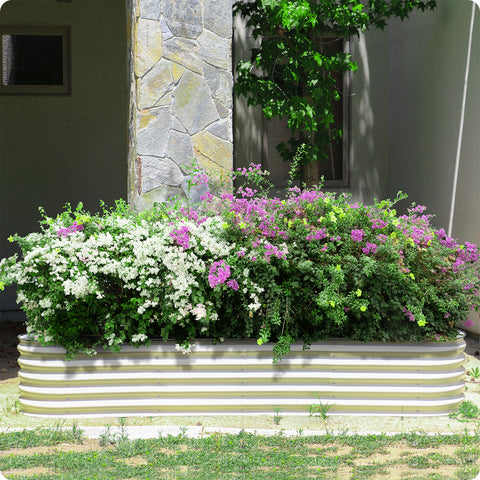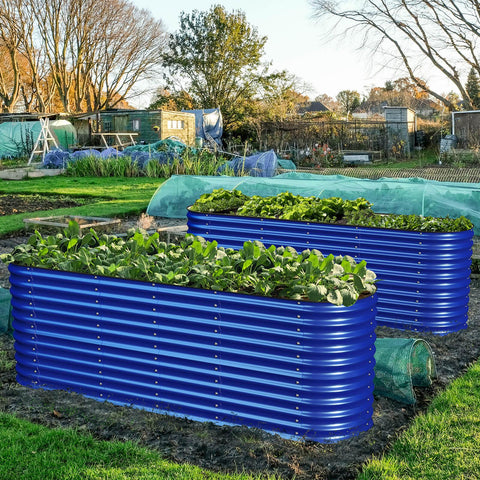Knowledge from Olle Garden Bed: 4 Ways To Use Wood Ash In Gardens
From its unique ability to help reduce soil acidity to the nutrients it provides to plants, people around the world use wood ash in their gardens. But do you know there are more ways to use this natural resource? This content also has some reference value for Olle Garden Beds.
Below you will find four creative ways to use wood ash in your garden. From minor adjustments to improve the success of certain plants and flowers to comprehensive projects aimed at improving the overall soil quality.
Therefore, no matter what type of gardening skills and tips you are interested in trying this season, you can consider some of these ideas as a sustainable way to take care of your outdoor space and achieve significant results!

What is wood ash?
Wood ash is the residue left by wood burning. It consists of small particles and fine powder, making it a valuable resource for your garden! It contains essential micronutrients essential to healthy soil.
When added to compost or directly to the soil in the garden, it can adjust the soil ph and add essential nutrients to help plants grow and be healthy. In addition, it is completely natural - no artificial fertilizer required! Whether you have a vegetable garden on the terrace or just some potted plants, wood ash can be an excellent supplement to any outdoor space.
Compost
Composting with wood ash is a good way to add nutrition to your compost heap! Adding wood ash helps to control the acidity and tillage degree of compost, making it more suitable for different kinds of plants.
In addition, if you have a particularly smelly compost, adding some wood ash can also help reduce the odor. When applying wood ash to the compost pile, spread it evenly on each layer - about 6 inches between each layer should solve the problem.
Expel pests
If you are looking for a natural way to drive away pests in your garden, wood ash is your best choice! Sprinkle it on plants and leaves to effectively drive out slugs.
It not only helps to stop these annoying small animals, but also is a safe, cost-effective alternative to chemicals or store bought pesticides. So don't let these pests ruin your gardening - use wood ash instead!
Add nutrition
Wood ash contains essential plant nutrients, such as calcium, potassium, magnesium, phosphorus and sulfur, which help promote the healthy growth of plants. In addition, it also contains trace amounts of aluminum, iron, zinc, manganese, boron and other minerals, which are beneficial to plants. For this reason, ashes can provide an excellent natural fertilizer or soil conditioner for your garden.
Neutralization ph
If you are looking for an environmentally friendly and cost-effective way to increase soil ph, wood ash is a good choice. It contains a large amount of carbonate, which reacts with the acid in the soil and neutralizes, leading to the increase of ph value.
Some plants that benefit from wood ash are conifers, asparagus, broccoli, juniper, cauliflower, tomatoes, brussels sprouts and grass.
There is a strong warning. Some of your favorite garden landscapes, such as holly, needle oak, azalea, blueberry, red maple, white birch and azalea, may prefer soil with stronger acidity and lower ph value. In this case, adding wood ash to the soil may do more harm than good!
Although this kind of ash is very useful for some plants that like the supplementary nutrients and minerals it provides, it is important to know which plants will not benefit from it - if abused, it may even harm them.
Different types of wood produce different levels of carbonate when burned. Therefore, keep this in mind when choosing which type of wood to use for the ashes. With this simple solution, you can adjust the ph of the soil and ensure that your plants get the materials they need.

Precautions when using wood ash
Although wood ash can bring many benefits to your garden, be careful when using it. In some cases, wood ash may contain heavy metals.
In order to ensure that you can safely get the return of wood ash and reduce this risk, please use it at the recommended speed. This keeps the concentration of any metal present at a safe level. In addition, if you are concerned about the concentration of heavy metals, it is always helpful to test the ash before application.
Finally, only clean wood ash from natural sources should be used, and wood from industrial areas, wood after pressure treatment, wood dyed or painted, wood from chemical sites, and wood burned with waste should be avoided.
Summary
From the use of wood ash to reduce soil acidity to provide essential nutrients for plants, this natural resource has many uses in gardens. Better yet, using ashes is an ecological way to take care of your outdoor space and get excellent results!
